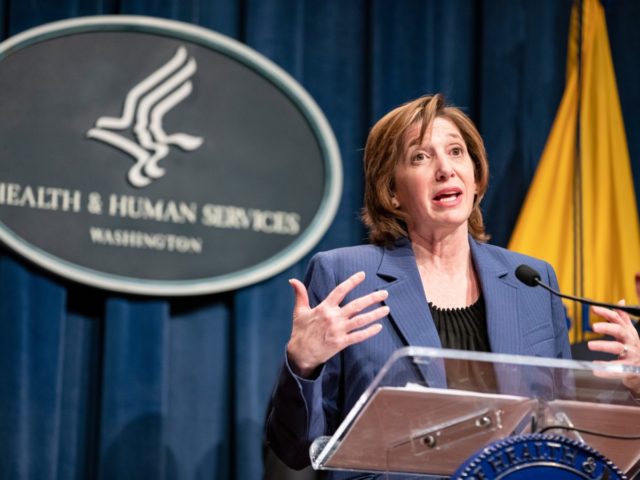The still low number of cases of the novel coronavirus in the United States is “a reflection of the aggressive containment efforts of the U.S. government,” said the Centers for Disease Control and Prevention (CDC) director of the National Center for Immunization and Respiratory Diseases.
In a press briefing Friday, Nancy Messonnier, M.D., said:
Because of the aggressive U.S. efforts at our border strategy the number of cases has been low. And we have been able to focus our efforts on travelers and their close contact based on our evaluation of who is at highest risk. We will continue to modify our approach. In terms of diagnostic testing, additional labs are coming on-line and additional test kits are on their way now.
Messonnier cautioned, however, about the possibility of additional cases of infection.
On Saturday, President Donald Trump announced further travel restrictions from Iran and also advised Americans not to travel to specific areas in Italy and South Korea. The announcement came as the U.S. confirmed its first death from COVID-19, the infection caused by the novel coronavirus, in the state of Washington.
“And we will continue to work aggressively to try to keep that number low,” Messonnier said. “We hope that if there is spread, the spread will be limited, and that any spread, any disease in the U.S. will be mild, and our focus on public health is on those issues.”
Reports of community spread of #COVID19 in California, Oregon & Washington raise concern about the immediate threat for COVID-19 for certain communities in the US. However, most people in the U.S. have little immediate risk of exposure to the virus. https://t.co/gYHI0wblwj
— CDC (@CDCgov) February 29, 2020
When asked questions about the amount of testing of cases the U.S. has done in comparison to China and other countries, Messonnier responded:
Again, the epidemiological situation in China and other countries is really different than the U.S. The U.S. acted incredibly quickly before most other countries. We aggressively controlled our borders, and therefore were able to slow the spread into the United States. That was an intentional U.S. strategy, with the goal of allowing us to focus our efforts. And, so, we have purposefully and intentionally focused surveillance at those of highest risk.
On January 31, the Trump administration announced a ban on entry into the U.S. for all foreign nationals who traveled in China, except for immediate family members of American citizens and permanent residents.
Additionally, U.S. citizens who had traveled in the Hubei province of China within the previous 14 days faced a mandatory quarantine of up to two weeks.
“These prudent, targeted, and temporary actions will decrease the pressure on public health officials screening incoming travelers, expedite the processing of U.S. citizens and permanent residents returning from China,” Secretary of Health and Human Services Alex Azar said.
“The risk of infection for Americans remains low and with these and our previous actions we are working to keep the risks low,” he added.
The Trump administration received criticism from China and some health experts who said the ban on travel was an overreaction to the situation.
“I think that the Trump administration is sliding from complacency and over-confidence to panic and overreaction to a point where we’re going to instill panic and fear in the American public,” Lawrence Gostin, a public health law expert at Georgetown University, said, according to NPR. “We have to keep our head here and remain calm.”
Wendy Parmet, a professor of health law policy at Northeastern University, also told NPR that while travel restrictions superficially project a sense of “acting tough,” they really give “false comfort that we can keep out germs by barring travel.”
“We are deluding ourselves, and that’s dangerous,” Parmet said. “It just doesn’t work that way.”
Bloomberg reported China was furious with the Trump administration’s travel ban, stating the U.S. “inappropriately overreacted” to the coronavirus scare.
“The U.S. government hasn’t provided any substantial assistance to us, but it was the first to evacuate personnel from its consulate in Wuhan, the first to suggest partial withdrawal of its embassy staff, and the first to impose a travel ban on Chinese travelers,” Chinese foreign ministry spokeswoman Hua Chunying said early in February.
However, National Security Adviser Robert O’Brien said the U.S. had offered the services of its top public health experts to help China with the coronavirus outbreak, but received no response from Beijing.
Hua added, the U.S. was “turning from overconfidence to fear and overreaction,” and complained that banning the entry of foreigners who traveled to China could be a civil rights violation and not an effective means of reducing the spread of infection.
The total number of COVID-19 confirmed and “presumptive positive” cases detected through the U.S. public health system is now 22, CDC said Saturday.

COMMENTS
Please let us know if you're having issues with commenting.